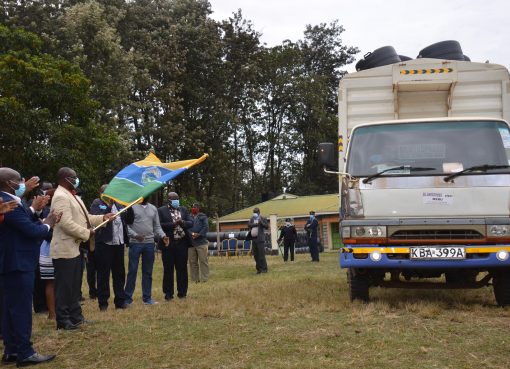Post-harvest losses for potato farmers in Ainabkoi sub-county in Uasin Gishu will reduce significantly once a cold storage facility being constructed in Olare-Ainabkoi is operationalised.
The state-of-the-art facility will have the capacity to hold 1,500 metric tonnes of potatoes annually and is expected to minimise wastage incurred by potato farmers in Uasin Gishu County after production.
Uasin Gishu Governor Jonathan Bii, while on an inspection tour of the ongoing construction of the cold storage store said the facility will be installed with modern technology to maintain optimal temperature for stored potatoes.
The county boss said that once completed, the store will serve more than 5,000 farmers, minimise wastage, and enhance the standards of requirements for potatoes at both local and international markets.
“This project will solve many challenges for our potato farmers including selling potatoes at a throwaway price for fear of losing their harvest due to poor storage,” Dr Bii said.
He added that the facility will help boost earnings for the farmers since they will be able to safely store their produce until they get the desired prices.
In his Nguzo number six on infrastructural development, Governor Bii outlines his vision for strategic planning, excellent project designs, and project implementation that ensures sustainable growth and meets the holistic needs of the residents of Uasin Gishu.
County Executive Committee Member for Roads, Transport and Public Works, Eng Joseph Lagat, who accompanied the governor, expressed satisfaction with the project’s implementation process and urged his team to work closely with the contractor to ensure the project is completed and commissioned on time.
“This is a testament to the county government’s commitment to creating sustainable solutions for our farmers towards economic growth and achieving food security, and as a department, we will continue supporting the initiative by providing the requisite skills during the implementation of such key projects,” Eng Lagat explained.
By Kiptanui Cherono




